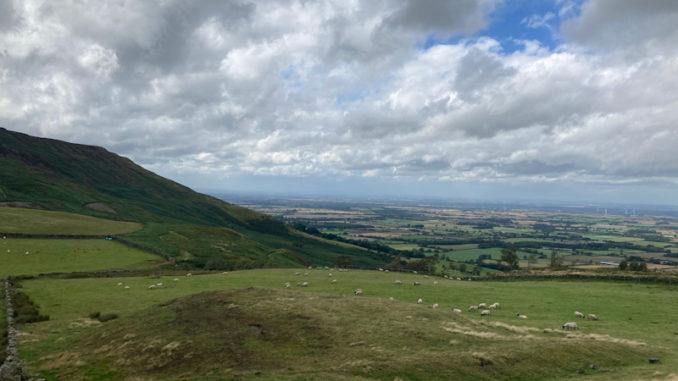
National park bosses have warmly welcomed a last-minute amendment to legislation which looks set to see public bodies and firms with statutory powers such as utility firms forced to demonstrate how any works in protected landscapes will benefit the areas.
A full meeting of the North York Moors National Park Authority heard the changes to the Levelling Up and Regeneration Bill would resolve a long-standing issue over whether works could go ahead without paying heed to either the national park’s main purposes or its management plan.
Entering its final days of discussion at report stage in House of Lords, Lord Randall of Uxbridge put forward an amendment to strengthen the duties on other public bodies to consider issues such as conserving landscapes and helping communities to thrive.
In a ministerial statement, Lord Benyon said the Government was intent on enhancing national parks’ management plans and placing a stronger requirement on partners to contribute to their delivery.
He said: “This will ensure protected landscapes organisations and their partners collaborate effectively, creating a national network of beautiful, nature-rich spaces that can be enjoyed right across the country.
“Our national parks and areas of outstanding natural beauty (AONBs) , collectively known as Protected Landscapes, are home to some of our most iconic and beautiful places.
“These remarkable landscapes support our nation’s health and wellbeing and are crucial to delivering our commitments to tackle climate change and restore nature, including our international commitments under the UN Convention on Biological Diversity.
“As we approach the 75th anniversary of the national parks and Access to the Countryside Act, which legally safeguarded these precious landscapes, the government is acting to accelerate the recovery of nature in England’s national parks and AONBs.”
The meeting heard the authority’s chief executive, Tom Hind, state the changes would bring “quite significant and positive benefits to the way in which public and other statutory bodies, including utility firms, should have regard” to the national park’s purposes.
He said it had been a significant bone of contention for many years that national park authorities had been given statutory duties and purposes, while the weight that is applied to other public bodies to adhere to those duties was “relatively limited, with a duty to have regard to” national park purposes.
The issue was recognised in the 2019 Glover Report landscapes review, which highlighted how relatively weak compulsory pressure was applied to other public bodies, including local authorities, when carrying out works, such as road improvements, to regard the aims of the national park.
He said: “We can’t do everything as a national park authority, we have relatively limited powers, limited resources, so the ability to deliver national park purposes, but more importantly our management plan objectives depends on the full weight of public policy coming together.”
The meeting heard the changes were set to be given Royal Assent in November.
Jim Bailey, the authority’s chairman, added: “It will give us the opportunity to go after these people and say show us how you are furthering our plans rather tha just having to say they have thought about it.”


Be the first to comment